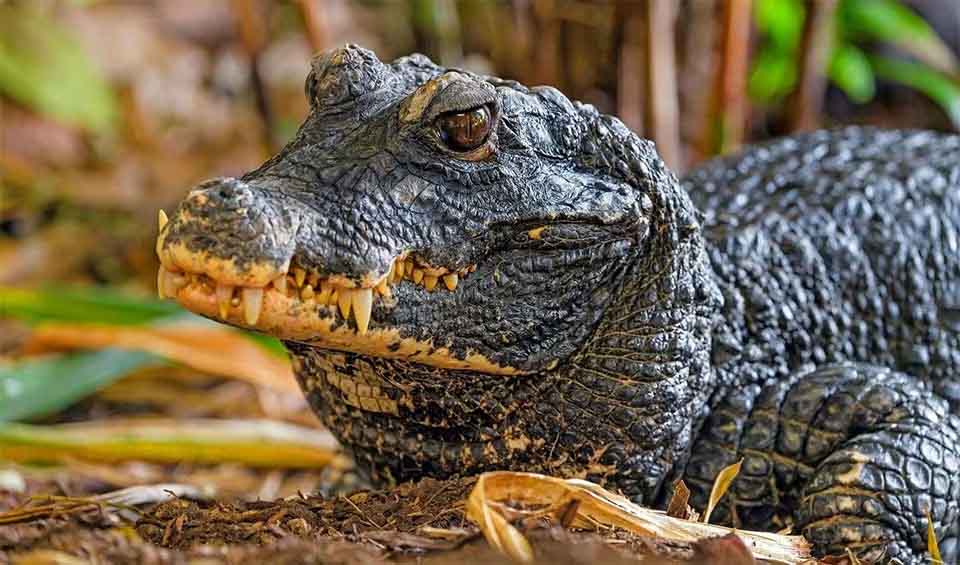Crocodyl’ – Crocodiles
The grumpy old crocodiles, unlike alligators, can’t keep their teeth hidden. Take it as a warning sign!
Crocodiles are indeed living relics of ancient times, having roamed the Earth virtually unchanged for over 85 million years. This remarkable longevity has earned them the “living fossils” title, a testament to their resilience and adaptability. Their lineage dates back to the age of dinosaurs, making them close relatives of these prehistoric giants, a connection that adds to their mystique and allure.
Size is another characteristic that sets crocodiles apart and commands respect. These apex predators can reach astonishing weights of up to 1200 kilograms (2600 pounds), making them formidable contenders in their environments. They are typically larger than their cousins, the alligators, with an average difference of 1.5 meters (5 feet) in length.
While alligators are generally more docile and less prone to aggression, crocodiles have earned a fearsome reputation for their notoriously grumpy demeanor. Provoking a crocodile is ill-advised, as they can swiftly switch from lethargic basking to lightning-fast strikes when threatened or provoked. Their powerful jaws, lined with rows of sharp teeth, can deliver bone-crushing bites capable of incapacitating even large prey.
Despite their formidable appearance and predatory prowess, crocodiles play vital roles in their ecosystems as apex predators. They help regulate populations of prey species, contributing to the overall balance and health of aquatic habitats. Their presence influences the behavior of other animals, shaping the dynamics of food webs and ecosystem structure.
Genera in this family
Armored tanks of the animal kingdom – home of the biggest crocodilians with the strongest bite on earth!
Native to sub-Saharan Africa, once considered a monotypic genus (consists of a single species)
Smallest of crocodiles with broad snouts native to Central-West Africa
‘Tomistoma,’ the scientific name of false gharial, literally means ‘sharp mouth’





